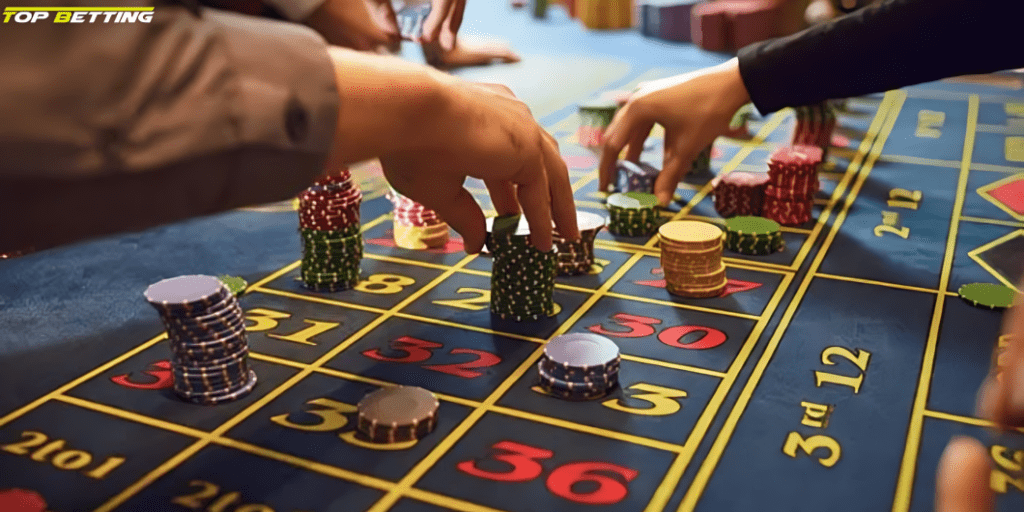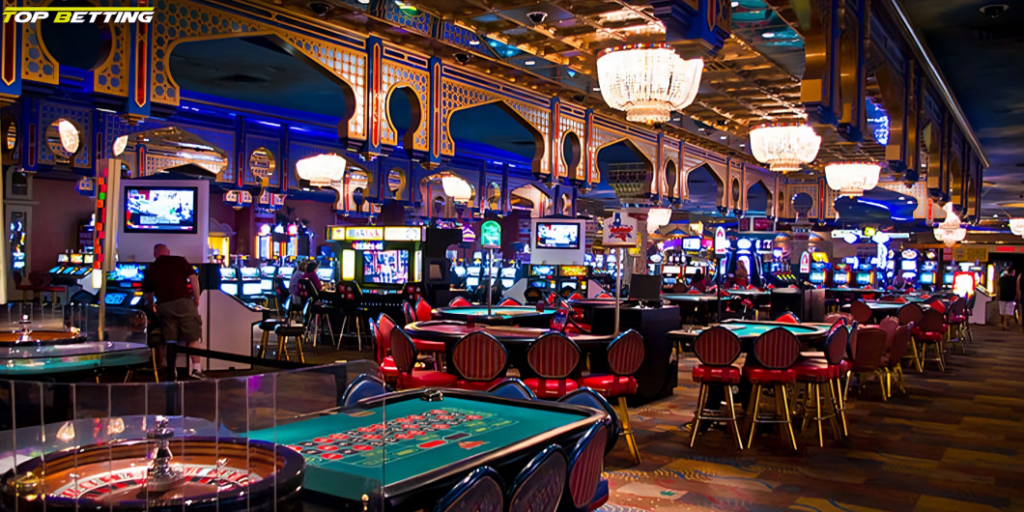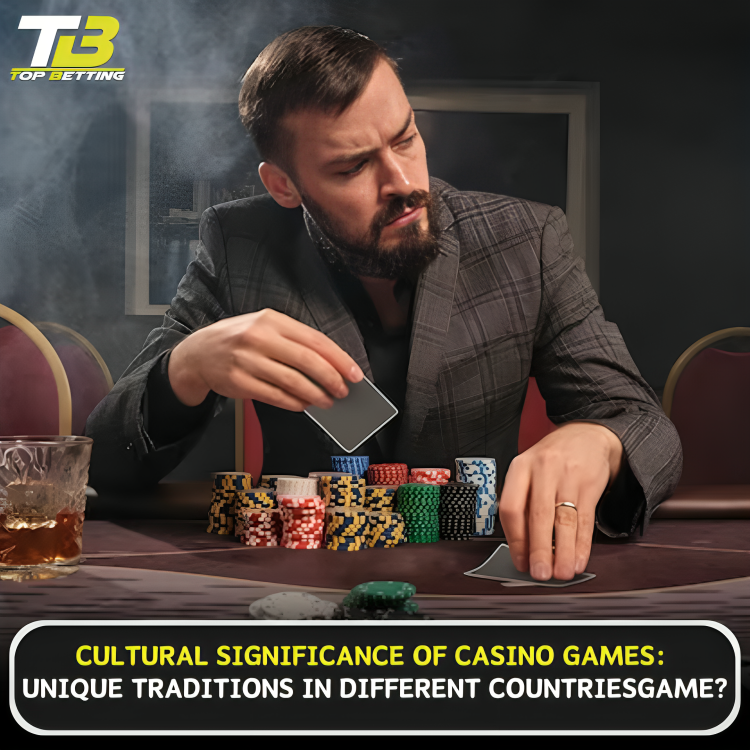
Cultural Significance of Casino Games
Introduction
Casino games have long been a popular form of entertainment across the globe. However, their significance goes beyond mere gambling; they often reflect and influence the cultural values and traditions of different societies. This article explores the cultural importance of casino games and highlights unique traditions associated with them in various countries.
United States: The Glitz and Glamour of Las Vegas
In the United States, Las Vegas is synonymous with casino culture. The city embodies the American spirit of extravagance and entertainment. Las Vegas’ casinos are not just places to gamble but also hubs for social interaction, featuring world-class shows, gourmet dining, and luxury shopping. The city’s iconic status in popular culture has made it a symbol of the high-energy, risk-taking ethos that characterizes American culture.
Casino Game Traditions in the United States
The United States boasts a rich history of casino gaming, with Las Vegas being the epitome of glitz and glamour. Casinos in Las Vegas are not merely places to place bets; they are entertainment complexes that offer shows, fine dining, and luxurious accommodations. The concept of “what happens in Vegas, stays in Vegas” has become synonymous with the city’s vibrant casino culture. Additionally, Native American tribes operate casinos on tribal land, showcasing traditional games and preserving their cultural heritage.
The popularity of poker in the US cannot be understated. From Texas Hold’em to Omaha, poker has become a staple in American casinos and home games alike. The World Series of Poker held in Las Vegas attracts players from around the globe, highlighting the competitive spirit and skill required to succeed in this iconic card game. Poker tournaments have transcended the casino walls, becoming televised events that capture the attention of millions of viewers.
Slot machines, or “one-armed bandits,” are ubiquitous in American casinos. The flashing lights, ringing bells, and anticipation of hitting the jackpot create an exhilarating experience for players. Slot machines have evolved from mechanical devices to digital marvels, offering a wide array of themes and bonus features to keep players entertained.
Unique Casino Game Traditions in Asia
Asia has a diverse and vibrant casino culture that blends tradition with modernity. In Macau, known as the “Monte Carlo of the East,” baccarat is the game of choice. The high-stakes nature of baccarat attracts wealthy gamblers from around the world, contributing significantly to Macau’s economy. The fusion of Portuguese and Chinese influences in Macau creates a unique gaming atmosphere that is unparalleled.
Japan’s love for pachinko is deeply ingrained in the nation’s history. Pachinko parlors are more than just gaming venues; they are social spaces where players form bonds and enjoy the lively ambiance. The clinking of steel balls, flashing lights, and the excitement of a potential jackpot make pachinko a beloved pastime for many Japanese individuals. Despite gambling restrictions, pachinko remains a cultural phenomenon in Japan.
In the Philippines, cockfighting is a traditional form of gambling that dates back centuries. Known locally as “sabong,” cockfighting is not just a game of chance; it is a cultural spectacle that reflects Filipino values of courage and camaraderie. Cockpits across the country bring communities together to witness fierce roosters battle in a display of skill and strength.
Cultural Significance of Casino Games in Europe
Europe boasts a rich tapestry of casino traditions that vary from country to country. In Monte Carlo, Monaco, the Casino de Monte-Carlo stands as a symbol of luxury and sophistication. Established in 1863, the casino has welcomed royalty, celebrities, and high rollers seeking a taste of European elegance. The allure of Monte Carlo lies in its history, opulent decor, and exclusivity.
The United Kingdom has a strong gambling culture, with traditions like horse racing and betting shops ingrained in society. The Grand National, held annually at Aintree Racecourse, is a highlight of the British sporting calendar, attracting millions of viewers and punters. Betting on horse races is a time-honored tradition that brings together enthusiasts to cheer on their favorite competitors.
In Spain, bullfighting has historical ties to gambling, with spectators wagering on the outcome of the bullfight. The tradition of “corrida de toros” is deeply rooted in Spanish culture, showcasing bravery, skill, and tradition in a spectacle that divides opinions. While controversial, bullfighting remains a significant part of Spain’s cultural heritage.
Casino Game Traditions in Latin America
Latin America boasts a colorful array of casino game traditions that reflect the region’s passion for gaming. In Argentina, tango-themed slot machines pay homage to the country’s iconic dance form. Tango music fills the casinos, creating a lively atmosphere that celebrates Argentina’s cultural heritage. The fusion of music and gaming captures the essence of Argentine identity.
Brazil’s love for bingo is a testament to the game’s popularity in the country. Despite legal restrictions on physical bingo halls, online bingo has flourished, offering players a chance to participate in this social game from the comfort of their homes. Bingo brings people together, fostering a sense of community and excitement among players of all ages.

In Mexico, the Day of the Dead-themed slot machines honor the country’s rich traditions and beliefs. The vibrant colors, intricate designs, and symbolic imagery pay tribute to this important Mexican holiday. Players immerse themselves in the festive spirit of Dia de los Muertos while enjoying the thrill of casino gaming.
Indigenous Casino Game Traditions
Indigenous communities around the world have their own unique casino game traditions that reflect their cultural heritage. In North America, Native American tribes operate casinos that showcase traditional games like lacrosse and stickball. These games hold spiritual significance and are passed down through generations as a way to preserve tribal customs and values.
In Australia, Indigenous communities engage in traditional forms of gambling like “Two-Up,” a coin-tossing game that dates back to the early days of European settlement. Played on Anzac Day and other special occasions, Two-Up is a symbol of camaraderie and remembrance among Australians. The game’s simplicity and social nature make it a cherished tradition.
The Role of Superstitions in Casino Games
Superstitions play a significant role in casino gaming around the world, influencing players’ behaviors and decisions. From lucky charms to rituals before playing, superstitions are deeply ingrained in gambling culture. In China, the number 8 is considered lucky, leading to an abundance of 8-themed slot machines and tables in casinos. Players often wear red clothing for good luck and avoid the number 4, which is associated with death.
In Western cultures, superstitions like “beginner’s luck” and avoiding certain seats at the poker table are common beliefs among players. Casino superstitions add an element of fun and mystery to the gaming experience, creating a sense of excitement and anticipation. Whether based on cultural traditions or personal beliefs, superstitions are a fascinating aspect of casino gaming.
Impact of Casino Games on Tourism and Economy
The casino industry plays a crucial role in driving tourism and boosting economies around the world. Popular gaming destinations like Las Vegas, Macau, and Monte Carlo attract millions of visitors annually, generating revenue for hotels, restaurants, entertainment venues, and local businesses. Casino resorts offer a diverse range of amenities beyond gaming, including shopping, dining, and live performances, creating a full-fledged entertainment experience for guests.
In countries where gambling is legal, casinos contribute to job creation and tax revenue, supporting social programs and infrastructure development. The economic impact of casinos extends beyond the gaming floor, influencing various sectors of the economy and stimulating growth in tourism-dependent regions. Governments often rely on casino revenue to fund public services and initiatives that benefit local communities.
Preserving and Promoting Cultural Traditions in Casino Games
As casino gaming evolves with technological advancements and changing consumer preferences, preserving cultural traditions becomes increasingly important. Casino operators have a responsibility to respect and promote the cultural heritage associated with different games and regions. Incorporating elements of local customs, art, and music into casino environments enhances the authenticity of the gaming experience and fosters a deeper connection with players.
Efforts to preserve indigenous casino game traditions and support local communities are essential for maintaining diversity in the global gaming industry. Collaborating with tribal leaders, cultural experts, and historians can help ensure that traditional games are represented accurately and respectfully in modern casino settings. By celebrating cultural diversity and heritage, casinos can create a more inclusive and meaningful experience for players worldwide.
Conclusion: Celebrating Diversity in Casino Game Traditions
The cultural significance of casino games is a testament to the rich tapestry of traditions and values that shape gaming experiences around the world. From the vibrant casinos of Las Vegas to the traditional pachinko parlors of Japan, each country’s gaming culture reflects its unique identity and heritage. By exploring the diverse casino game traditions in different regions, we gain a deeper appreciation for the cultural significance of gambling and the connections it fosters among communities.

As we celebrate the diversity of casino game traditions, let us honor the stories, rituals, and customs that make gaming a truly global phenomenon. Whether playing poker in the United States, baccarat in Macau, or bingo in Brazil, the shared experience of casino games transcends borders and languages. Let us continue to embrace and preserve the cultural heritage embedded in casino gaming, ensuring that future generations can enjoy the traditions that have stood the test of time.











